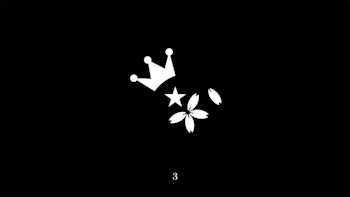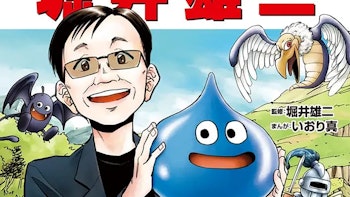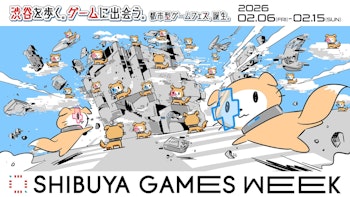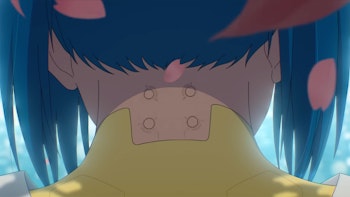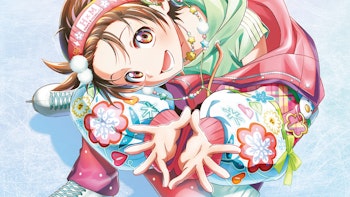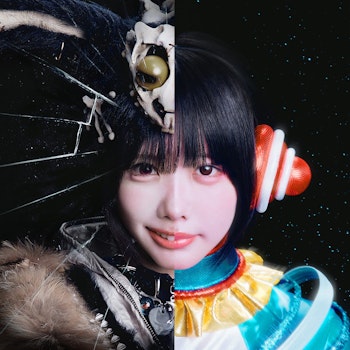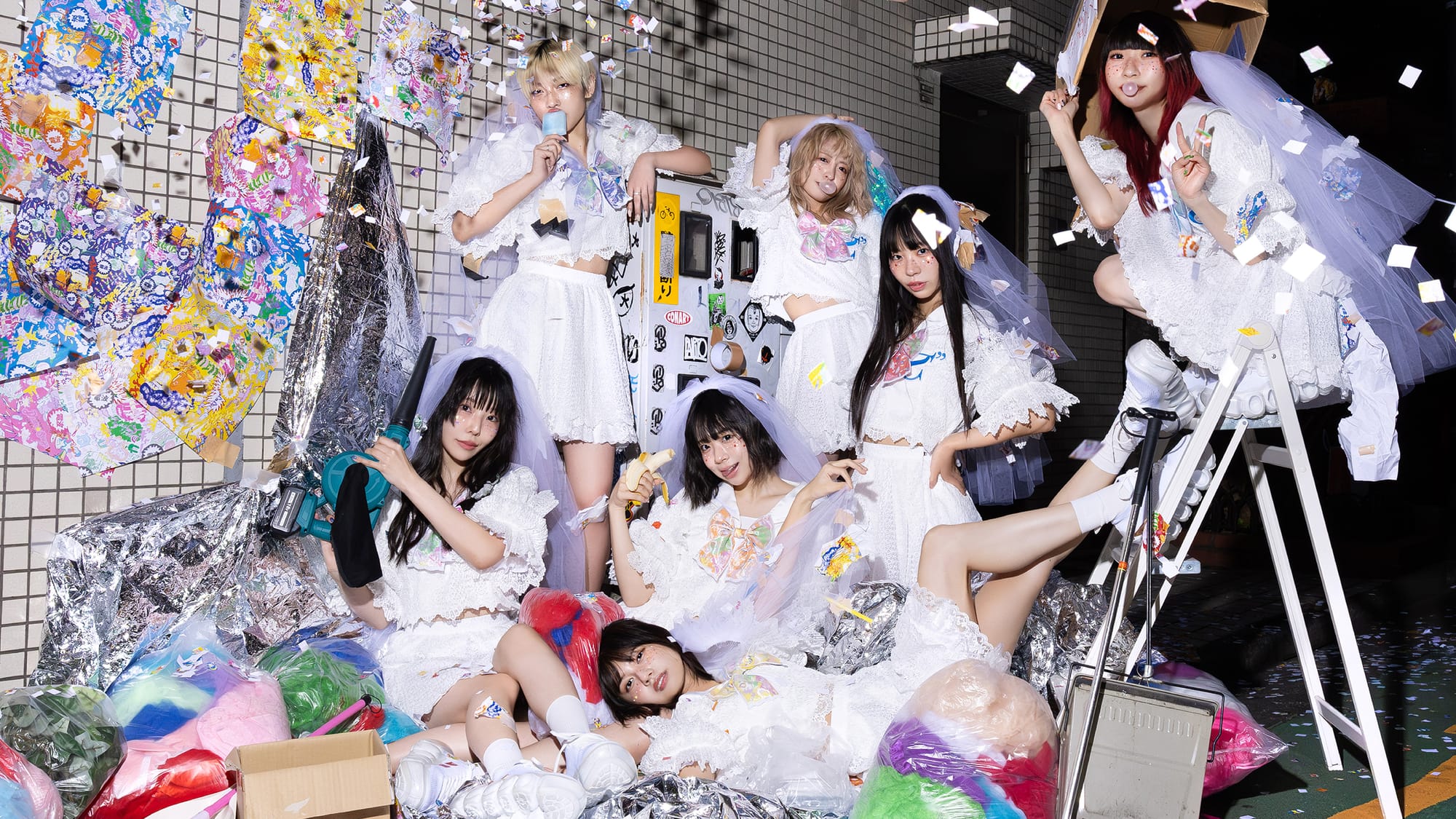
For just over half a decade, Akihabara was the center of the J-pop universe. That’s because the neighborhood housed AKB48, a dozens-eventually-hundreds-strong idol outfit whose base of operations sat on the top floor of the hulking Don Quijote store. The group used the power of fandom and media access to become the best-selling female act in Japanese music history, and towering over the industry during the early 2010s. While they nodded to the area’s otaku reputation, AKB were definitely mainstream.
Across the street and down a side alley from the AKB theater on the eighth floor of a novelty supermarket sits Dear Stage. What’s most striking about it is how small it is. “Cozy” might be too spacious a descriptor for the venue, tucked away down a side street in Tokyo’s Akihabara neighborhood. Despite the size, there’s enough room to host idol shows. A bit tight, sure, but gets the job done and offers an alternative from the glamorous stages out of reach of so many aspiring acts…including the one a crosswalk away.
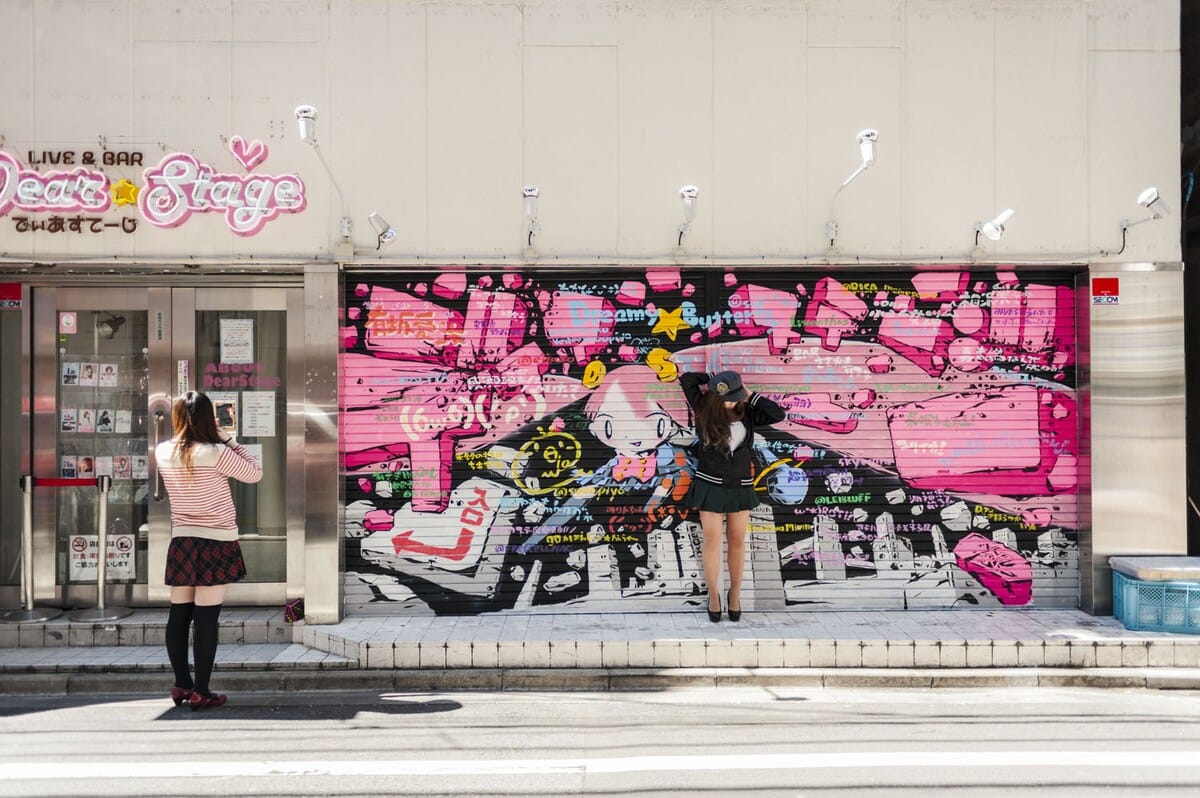
It’s the fitting birthplace of Dempagumi.inc, a high-energy idol outfit started in 2008 and which called it a career this past weekend following two sold-out shows at Makuhari Messe. The group — going through multiple lineup changes during its 17-year existence, it’s final version topping out at seven members — rose to notability as an alternative offering a different angle on Akihabara culture. AKB48 fixated on youth and young love over peppy music maxing out at “uptempo.” It was general. Dempagumi.inc celebrated nerdier pastimes — gaming, the act of idol-ing itself, using the internet — while also digging into the challenges that come with trying to navigate life. The soundtrack to all of this was often BPM-busting electronic sounds punctured by sudden turns into theatrics, sometimes melancholy but ultimately triumphant.
The group represented specificity, and showed that listeners loved something so tied to a place.
That’s fully displayed on 2012’s “W.W.D,” Dempagumi’s breakout single and topsy-turvy origin story. Musically, it presents the unit somewhere between nervy pop maximalists and theater kids, more a short play than a radio-eyeing hit. Yet within its structure, there’s vulnerability galore. The members take turns offering bite-sized biographies of how they ended up here — bullied, feeling dejected, addicted to online gaming to the point of hikkikomori-dom. It’s heavy, especially in spoken-word passages that really get at the heart of their hardships. It’s all in service of something hopeful though, in the form of Akihabara — a place where all their interests can flourish — and the safety of an idol group.
Together, they can do anything, whether it be challenging the world or just feeling like they’ve found a place they belong.
Let’s not get too bogged down in emotions though — Dempagumi.inc’s music, especially during its run in the early 2010s, was fantastic, blurring the boundaries between idol fare and underground electronic scenes. Its primary point of reference is “denpa song,” an otaku-adjacent mutation on dance-pop big on upbeat melodies and nearly nonsensical lyrics. Songs like “Future Diver” feature splashes of 8-bit sound, while the more frantic “Den Den Passion” zips all over the place, unafraid of being too much. There’s always a bit of eccentric energy in Dempagumi’s music, but also a pop heart making cuts like “Sakura Apparition” as catchy as anything from that period. They also just had a lot of fun with it — nobody else appearing at Tokyo Idol Fest was offering fittingly chaotic covers of The Beastie Boys, but Dempagumi understood part of the thrill of this corner of music was being able to do whatever you wanted.
As they got bigger, Dempagumi expanded its sound, with 2015’s WWDD making room for more experiments in slower and less hurried sounds (albeit with plenty of that in place too). The group always sounded best when moving at breakneck speed, and even as members graduated and new faces showed up in the fold, the project’s best moments remained unpredictable and marked by nods to the culture that shaped them (see 2022’s dizzying “Augmented Ojiichan,” both loving tribute to the halcyon days of Nico Nico Douga and funny thought exercise of what the senior citizens of tomorrow will see as Aughts online nostalgia).
Dempagumi.inc were certainly “alternative idols,” at least if one subscribes to a strict definition of what an idol should be. Yet by the time they started ascending up the pop ranks en route to Budokan and arena shows, that very idea of idol-dom had completely scrambled, aided in large part by the internet offering easier access to groups breaking away from the classically innocent and cute model. Momoiro Clover Z had already paved the way, while contemporaries (and kayfabe rivals) BiS provided a more subversive, rock-grounded interpretation. BABYMETAL’s kawaii-meets-the-mosh-pit energy was right around the corner. Dempagumi offered another interpretation of what an idol could be.
Yet the core draw was the same. While the sounds and image Dempagumi.inc delivered couldn’t be more different than the outfit literally across the street from them, the emotional core of the project was quite similar to what you’d find in AKB48. For both, the idea of being an idol provided young women a chance to make entertainment dreams come true and give them meaning. The only difference was who ended up drawn to them, with AKB offering something akin to traditional idol success…and Dempagumi imagining a place where the otaku could thrive.
Together, the two groups tell the J-pop story of Akihabara in the 2010s perfectly. AKB48 used the neighborhood as a base, tapping into its history and culture but ultimately focused on going outwards. Dempagumi, meanwhile, was inseparable from it. As they shouted many times in their songs — “from Akihabara to the world,” the group brought the area’s charm to as many as possible, a theme appearing late into its existence. The sound and style of Dempagumi is Akihabara in the preceding decade, and they captured the spirit that brings so many people to the area…and shared it.


